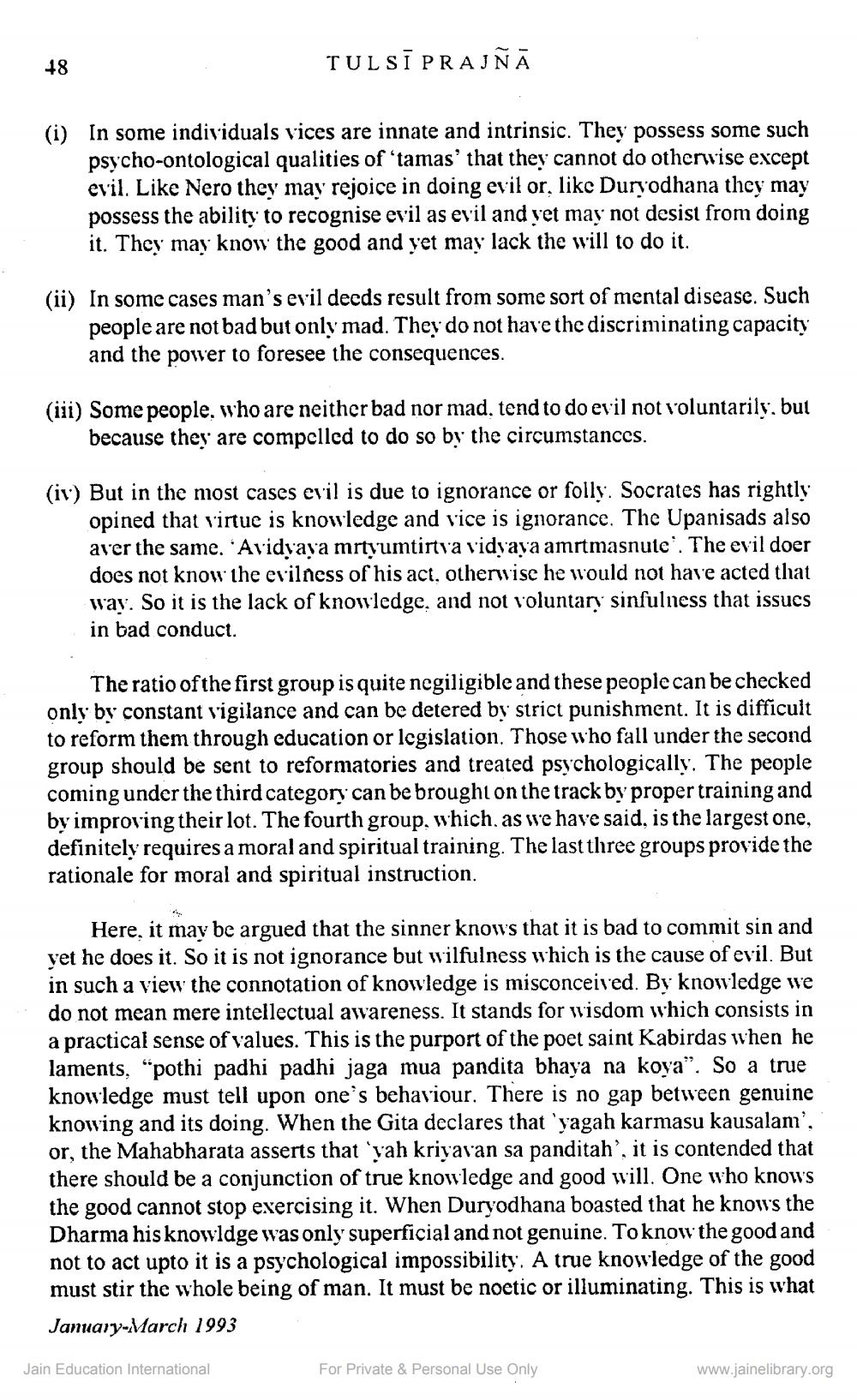________________
TULSI PRAJŇA
(i) In some individuals vices are innate and intrinsic. They possess some such
psycho-ontological qualities of 'tamas' that they cannot do otherwise except evil. Like Nero they may rejoice in doing evil or, like Duryodhana they may possess the ability to recognise evil as evil and yet may not desist from doing it. They may know the good and yet may lack the will to do it.
(ii) In some cases man's evil decds result from some sort of mental disease. Such
people are not bad but only mad. They do not have the discriminating capacity and the power to foresee the consequences.
(iii) Some people who are neither bad nor mad, tend to do evil not voluntarily, but
because they are compelled to do so by the circumstances.
(iv) But in the most cases evil is due to ignorance or folly. Socrates has rightly
opined that virtue is knowledge and vice is ignorance. The Upanisads also aver the same. 'Avidyaya mrtyumtirtva vidyaya amrtmasnule". The evil doer does not know the evilness of his act, otherwise he would not have acted that way. So it is the lack of knowledge, and not voluntary sinfulness that issues in bad conduct.
The ratio ofthe first group is quite negiligible and these people can be checked only by constant vigilance and can be detered by strict punishment. It is difficult to reform them through education or legislation. Those who fall under the second group should be sent to reformatories and treated psychologically. The people coming under the third category can be brought on the track by proper training and by improving their lot. The fourth group, which, as we have said, is the largest one, definitely requires a moral and spiritual training. The last three groups provide the rationale for moral and spiritual instruction.
Here, it may be argued that the sinner knows that it is bad to commit sin and yet he does it. So it is not ignorance but wilfulness which is the cause of evil. But in such a view the connotation of knowledge is misconceived. By knowledge we do not mean mere intellectual awareness. It stands for wisdom which consists in a practical sense of values. This is the purport of the poet saint Kabirdas when he laments, "pothi padhi padhi jaga mua pandita bhaya na koya". So a true knowledge must tell upon one's behaviour. There is no gap between genuine knowing and its doing. When the Gita declares that 'yagah karmasu kausalam', or, the Mahabharata asserts that 'yah kriyavan sa panditah', it is contended that there should be a conjunction of true knowledge and good will. One who knows the good cannot stop exercising it. When Duryodhana boasted that he knows the Dharma his knowldge was only superficial and not genuine. To know the good and not to act upto it is a psychological impossibility. A true knowledge of the good must stir the whole being of man. It must be noetic or illuminating. This is what January-March 1993
Jain Education International
For Private & Personal Use Only
www.jainelibrary.org




